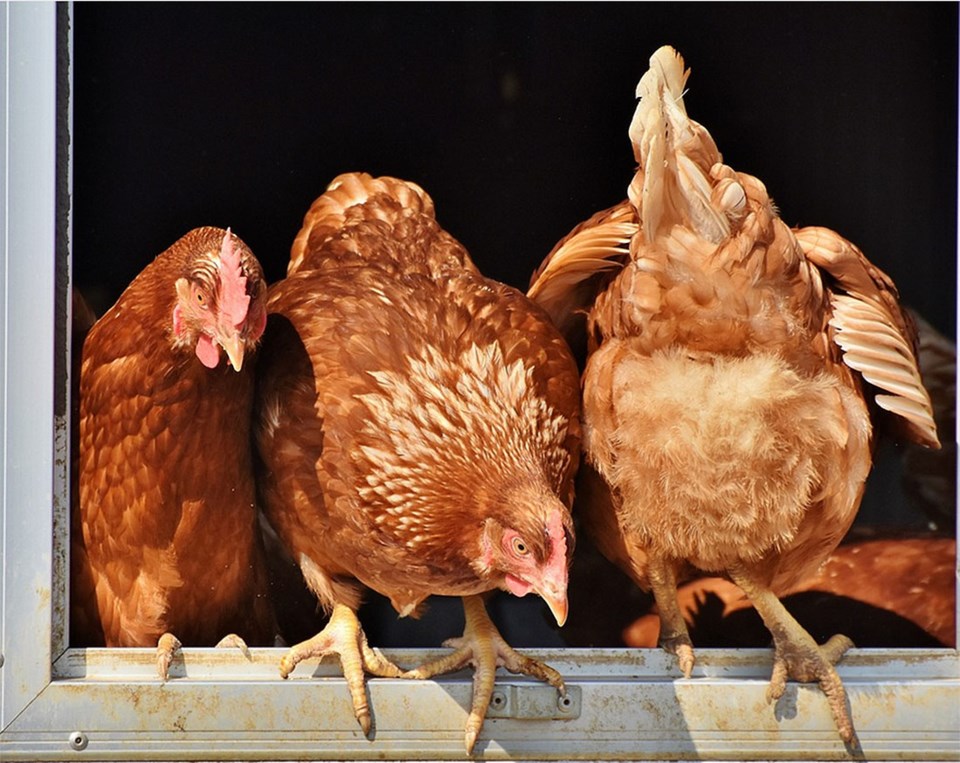Delta residents who are keeping their own backyard chickens have been notified to be on the lookout for signs of avian influenza.
That’s according to a Delta staff in a recent response to a letter of concern to council about the spreading bird flu virus in B.C. and how the keeping of chickens in residential areas may increase the risk of transmission.
The province in recent weeks announced the first case of avian influenza in a poultry flock and subsequent cases have since been reported.
Several small or backyard flocks have also contracted the virus including ones in Kelowna, Richmond, Armstrong and the central Kootenays. Wild birds have also tested positive for H5 strains of avian influenza.
The Delta staff response notes that upon notification of an eagle testing positive at Vancouver’s Stanley Park, the Delta Community Animal Shelter pro-actively emailed those keeping backyard chickens to bring awareness about the situation.
The information provided includes provincial and federal resources and educational materials, as well as contact information should hen owners need further support. The city also has a webpage with information for hen owners on how to prevent and detect disease in backyard flocks. See more at: delta.ca.
Delta requires those keeping backyard chickens to licence them with the city and register their property with the BC Ministry of Agriculture and Food.
Registering through the province’s Premises ID Program will assist with tracking of birds during any disease outbreaks.
The ministry says owners of small or backyard flocks are urged to continue to be vigilant and have appropriate preventative measures in place.
Those measures include eliminating or reducing opportunities for poultry to encounter wild birds, reducing human access to the flock, as well as increased cleaning, disinfection and sanitization of all things including clothing and footwear when entering areas where flocks are housed.
Last summer, Delta council gave final approval for a bylaw amendment to permit residents to have backyard chickens in single-family neighbourhoods.
It’s a pilot project and the city will review the program later this year.
The bylaw amendment removed a previous requirement of properties having chickens being located next to agriculturally-zoned properties.
No minimum lot size is required.
Roosters are prohibited and the number of hens permitted on a property is restricted to four.
The bylaw also requires food and manure to be removed to reduce smell and pest impacts. Coops and runs are limited to a maximum of 108-square-feet of combined indoor and outdoor space.
Chickens are also to be kept for personal use and shall not be kept for the purposes of selling meat, eggs or other products.



